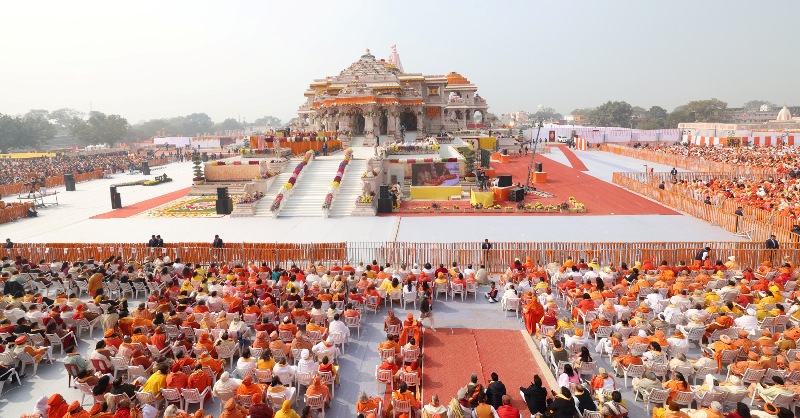The recent inauguration of the Ram Temple in Ayodhya, India, has sparked a blend of joy and criticism, reigniting concerns over religious tolerance in the nation. Constructed on the disputed site of the 16th-century Babri Mosque, the temple has been met with celebration from Hindu devotees, while Muslim groups and global observers express dismay.
Stephen Schneck, a member of the U.S. Commission on International Religious Freedom (USCIRF), has raised apprehensions about the temple’s construction, emphasizing potential implications for the security of places of worship in India. The Organization of Islamic Cooperation (OIC) has also condemned what it perceives as the destruction of Islamic landmarks in the country.
Indian Prime Minister Narendra Modi observed fasts and prayers for 11 days preceding the temple’s opening. Interestingly, Modi’s speech during the celebration avoided any mention of the Babri Mosque.
The demolition of the Babri Mosque in 1992 triggered widespread communal violence in India, resulting in thousands of fatalities. Despite the Supreme Court’s approval for the construction of the Hindu temple in 2019, government funding was restricted due to the country’s secular constitution. Private donations totaling $360 million ultimately supported the project.
During the consecration of the temple, Modi articulated a vision for a “divine India.” However, critics, including Hindus for Human Rights, have raised concerns about the potential political and electoral exploitation of Hinduism by Modi’s ruling party.
As India grapples with religious tensions, observers express worries about the impact of such actions on religious freedom, potentially exacerbating existing tensions and violence against religious minorities. The grand opening of the Ram Temple also carries symbolic weight in the lead-up to the upcoming general elections in May 2024.















































